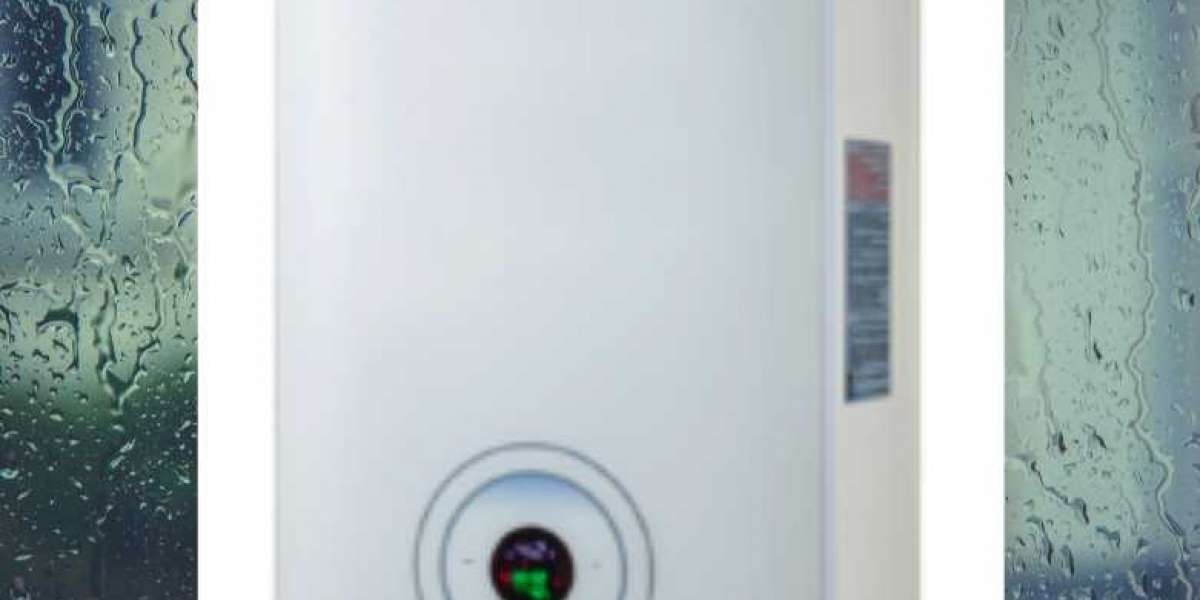Gas central heating boilers are essential appliances for efficiently heating homes and buildings. They provide warmth by heating water, which is then distributed through radiators or underfloor heating systems. If you're considering installing or replacing a gas central heating boiler, this guide will walk you through everything you need to know.
Understanding Gas Central Heating Boilers
Gas boilers operate by burning natural gas or propane to heat water. The heated water is then circulated through pipes to radiators or underfloor heating systems, warming your home effectively and efficiently. Modern gas boilers are designed to be energy-efficient, reducing both fuel consumption and heating costs compared to older models.
Types of Gas Central Heating Boilers
1. Combi Boilers
Combi (combination) boilers are popular for smaller homes as they provide both central heating and hot water on demand. They don’t require a separate hot water cylinder or cold-water tank, making them space-saving and convenient.
2. System Boilers
System boilers require a hot water cylinder to store hot water for use throughout the home. They are suitable for larger homes with higher hot water demands and provide a constant supply of hot water to multiple outlets simultaneously.
3. Regular Boilers (Conventional Boilers)
Regular boilers work alongside a hot water cylinder and cold-water tank, making them suitable for homes with traditional heating and hot water systems. They are ideal for properties with multiple bathrooms and higher hot water demands.
Factors to Consider Before Installation
1. Heating Requirements
Assess your heating needs based on the size of your home and the number of rooms that require heating. This will help determine the boiler size and type suitable for your property.
2. Energy Efficiency
Look for boilers with high energy efficiency ratings, such as those certified by Energy Star or with an A-rated efficiency label. This can significantly reduce your energy bills over time.
3. Installation Costs and Requirements
Get quotes from certified gas boiler installers and consider any additional costs such as pipework, ventilation requirements, and boiler controls. Ensure the installer is Gas Safe registered to comply with safety regulations.
Installing a Gas Central Heating Boiler
1. Choosing a Location
Boilers are typically installed in kitchens, utility rooms, or garages, where there is adequate ventilation and access to gas and water supplies. The location should also allow for future maintenance and servicing.
2. Ventilation Requirements
Gas boilers require sufficient ventilation to operate safely. Ensure there is adequate air circulation around the boiler and that any flues or vents comply with building regulations.
3. Pipework and Connections
Installers will connect the boiler to the gas supply and water mains, as well as to the heating system pipes and radiators or underfloor heating. Proper insulation of pipework helps improve efficiency.
Maintaining Your Gas Central Heating Boiler
1. Annual Servicing
Schedule annual servicing by a Gas Safe registered engineer to ensure your boiler operates safely and efficiently. Servicing includes cleaning components, checking for leaks, and testing controls.
2. Monitoring Efficiency
Regularly monitor your boiler's efficiency by checking energy bills and looking out for any changes in performance or heating patterns. Efficiency can decline over time, necessitating adjustments or upgrades.
Safety Considerations
1. Carbon Monoxide Alarms
Install carbon monoxide alarms near your boiler and throughout your home to detect any leaks promptly. Carbon monoxide is a silent and deadly gas emitted during incomplete combustion.
2. Boiler Shutdown Procedures
Familiarize yourself with emergency shutdown procedures in case of gas leaks or boiler malfunctions. This includes turning off the gas supply and contacting a Gas Safe registered engineer immediately.
Conclusion
Gas central heating boiler are efficient and reliable solutions for home heating, providing warmth and hot water throughout the year. By understanding the types of boilers available, installation considerations, and maintenance requirements, you can make informed decisions to ensure comfort and safety in your home. Always consult with qualified professionals for installation and servicing to maintain the longevity and efficiency of your boiler system.









